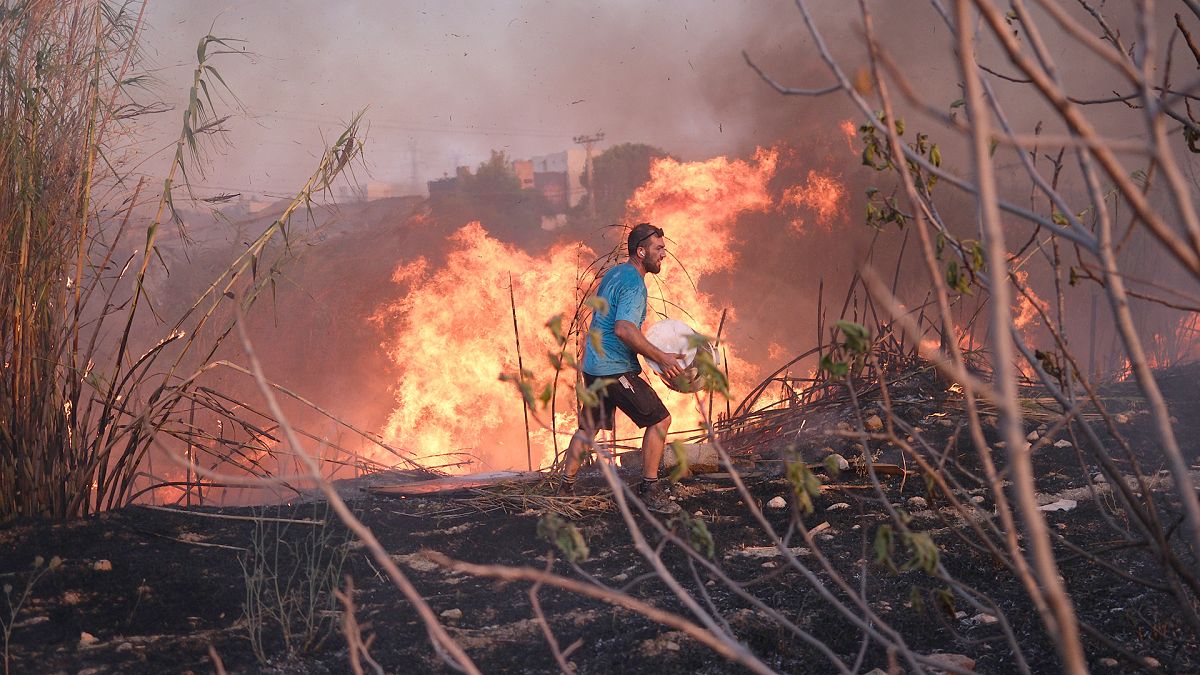The European Union has stepped in to provide emergency support to Greece and Albania in their efforts to combat severe wildfires. The assistance will include both aerial and ground firefighting resources from various European countries participating in the EU’s Civil Protection Mechanism. Greece will receive two rescEU firefighting planes from Italy, a rescEU helicopter from France, and additional firefighting teams on the ground from countries such as the Czech Republic, Romania, and Serbia. Albania, on the other hand, will benefit from a multipurpose military plane from Romania capable of carrying up to 6 tonnes of water. This aid comes as wildfires continue to ravage both countries, posing a threat to lives and property.
The EU Civil Protection Mechanism plays a crucial role in disaster response and can be activated at the request of individual EU member states and participating non-EU countries. In light of the increasing frequency and intensity of wildfires in Europe, the European Commission has allocated €600 million to enhance the mechanism’s aerial firefighting capabilities. This funding will enable the purchase and deployment of twelve new planes to countries like Croatia, France, Italy, Greece, Portugal, and Spain. The European Commissioner for Crisis Management, Janez Lenarčič, emphasized the importance of strengthening rescEU firefighting capacity to better protect citizens across Europe from the devastating impact of wildfires.
In Greece, firefighters have been battling a massive blaze that broke out in the northeast of Athens and spread to the northern and northeastern suburbs of the capital. Tragically, one woman has lost her life, and multiple individuals have been injured due to the wildfires driven by strong winds. While the fire no longer has active advancing fronts, firefighters are working tirelessly to extinguish the flames in numerous slow-burning areas. Meanwhile, Albania is also grappling with wildfires in the village of Mesopotam, prompting civil emergency services to evacuate two families. Authorities attribute the increased frequency and size of wildfires in Albania to climate change, which exacerbates the country’s hot and dry summer conditions.
The allocation of emergency support from the EU underscores the importance of international cooperation in responding to natural disasters such as wildfires. By mobilizing resources and expertise from various European countries, Greece and Albania can enhance their firefighting capabilities and mitigate the impact of ongoing wildfires. The EU’s commitment to strengthening the rescEU firefighting capacity is a significant step towards building a more resilient and prepared Europe in the face of escalating climate-related emergencies. As wildfires continue to pose a threat to lives and ecosystems across the continent, collaborative efforts like these are essential in safeguarding communities and natural landscapes from the devastating effects of uncontrolled fires.
The devastating impact of wildfires extends beyond immediate loss of life and property damage, affecting ecosystems, wildlife, and air quality. In addition to providing emergency support during active wildfire incidents, it is crucial for countries to invest in wildfire prevention, mitigation, and preparedness measures. This includes implementing land management strategies, creating defensible spaces around vulnerable communities, conducting prescribed burns, and raising public awareness about fire safety. By adopting a comprehensive approach to wildfire management, countries can reduce the risk of catastrophic wildfires and protect both human populations and the environment from the destructive consequences of uncontrolled fires. The EU’s efforts to bolster rescEU firefighting capacity are part of a broader strategy to address the growing threat of wildfires in Europe and ensure a coordinated and effective response to future fire emergencies.











